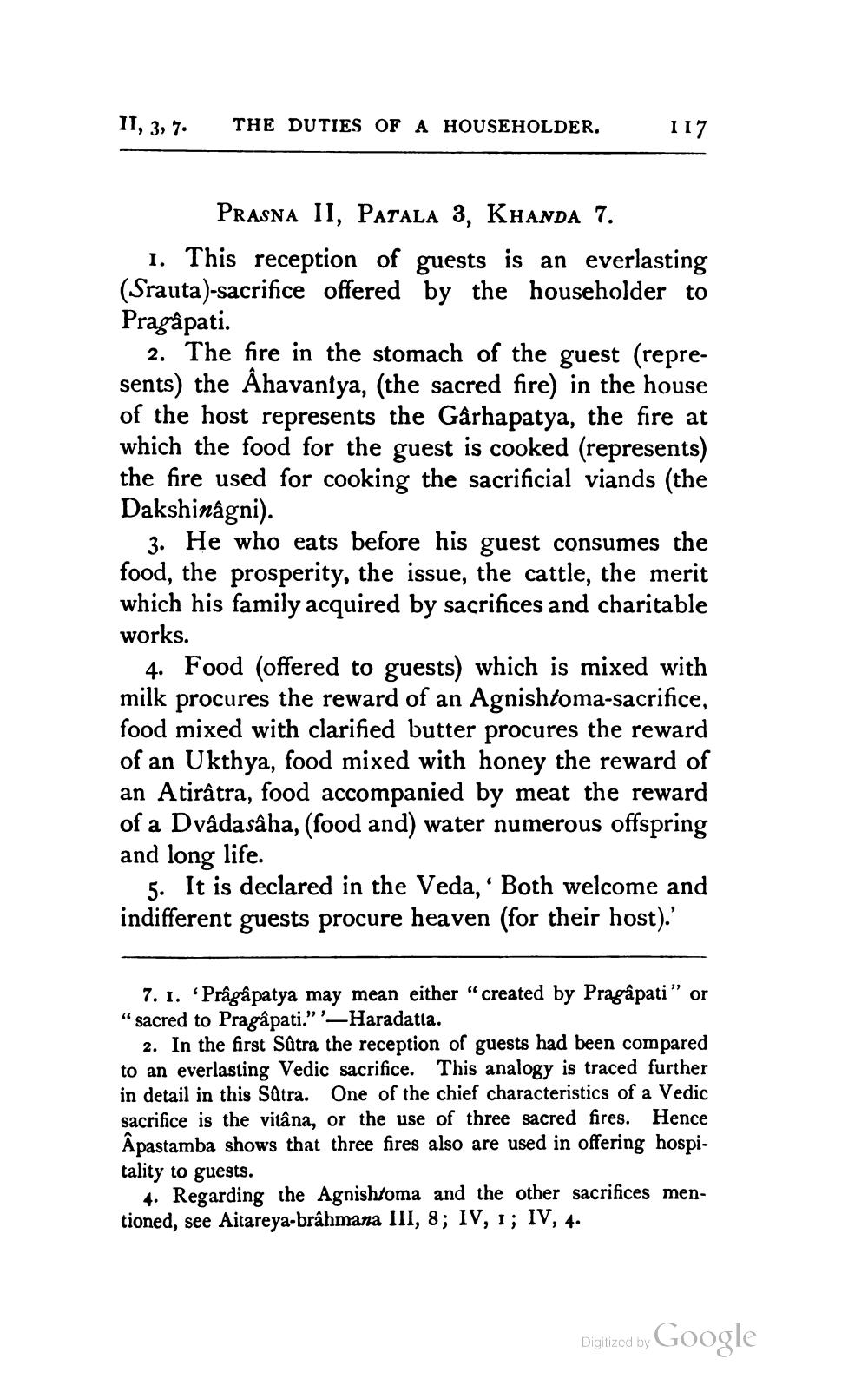________________
II, 3, 7.
THE DUTIES OF A HOUSEHOLDER.
117
Prasna II, PATALA 3, Khanda 7. 1. This reception of guests is an everlasting (Srauta)-sacrifice offered by the householder to Pragâpati.
2. The fire in the stomach of the guest (represents) the Ahavaniya, (the sacred fire) in the house of the host represents the Gârhapatya, the fire at which the food for the guest is cooked (represents) the fire used for cooking the sacrificial viands (the Dakshinagni).
3. He who eats before his guest consumes the food, the prosperity, the issue, the cattle, the merit which his family acquired by sacrifices and charitable works.
4. Food (offered to guests) which is mixed with milk procures the reward of an Agnishtoma-sacrifice, food mixed with clarified butter procures the reward of an Ukthya, food mixed with honey the reward of an Atirâtra, food accompanied by meat the reward of a Dvadasâha, (food and water numerous offspring and long life.
5. It is declared in the Veda,' Both welcome and indifferent guests procure heaven (for their host).'
7. 1. *Prâgâpatya may mean either “created by Pragâpati" or “sacred to Pra gâpati." '-Haradatta.
2. In the first Satra the reception of guests had been compared to an everlasting Vedic sacrifice. This analogy is traced further in detail in this Satra. One of the chief characteristics of a Vedic sacrifice is the vitâna, or the use of three sacred fires. Hence Âpastamba shows that three fires also are used in offering hospitality to guests.
4. Regarding the Agnishtoma and the other sacrifices mentioned, see Aitareya-brâhmana III, 8; IV, 1; IV, 4.
Digitized by Google




